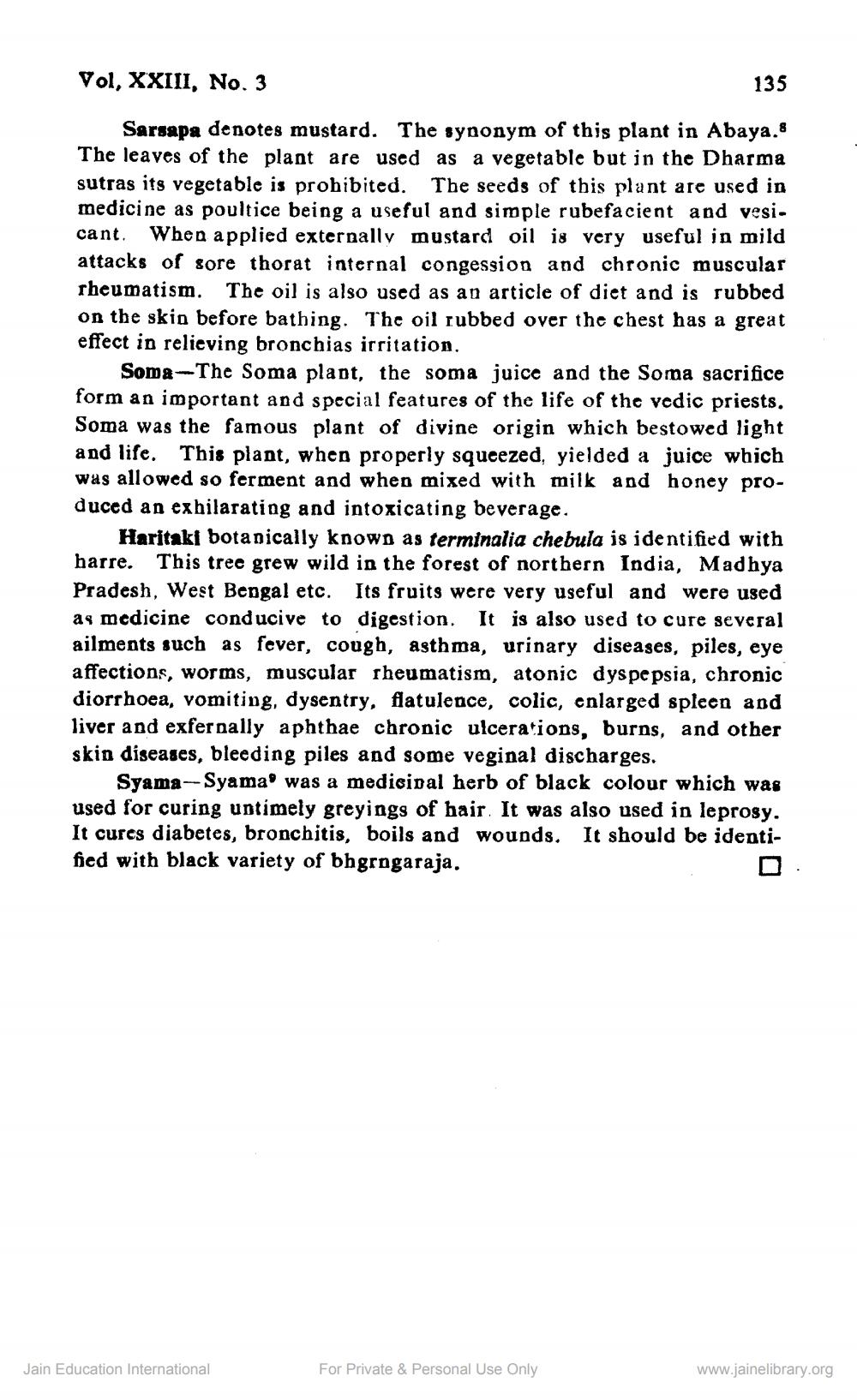________________
Vol. XXIII, No. 3
135
Sarsapa denotes mustard. The synonym of this plant in Abaya.s The leaves of the plant are used as a vegetable but in the Dharma sutras its vegetable is probibited. The seeds of this plant are used in medicine as poultice being a useful and simple rubefacient and vesi. cant. When applied externally mustard oil is very useful in mild attacks of sore thorat internal congession and chronic muscular rheumatism. The oil is also used as an article of diet and is rubbed on the skin before bathing. The oil rubbed over the chest has a great effect in relieving bronchias irritation.
Soma-The Soma plant, the soma juice and the Soma sacrifice form an important and special features of the life of the vedic priests. Soma was the famous plant of divine origin which bestowed light and life. This plant, when properly squeezed, yielded a juice which was allowed so ferment and when mixed with milk and honey produced an exhilarating and intoxicating beverage.
Haritaki botanically known as terminalia chebula is identified with harre. This tree grew wild in the forest of northern India, Madhya Pradesh, West Bengal etc. Its fruits were very useful and were used as mcdicine conducive to digestion. It is also used to cure several ailments such as fever, cough, asthma, urinary diseases, piles, eye affections, worms, muscular rheumatism, atonic dyspepsia, chronic diorrhoea, vomiting, dysentry, flatulence, colic, enlarged spleen and liver and exfernally aphthae chronic ulcerations, burns, and other skin diseases, bleeding piles and some veginal discharges.
Syama--Syama' was a medicipal herb of black colour which was used for curing untimely greyings of hair. It was also used in leprosy. It cures diabetes, bronchitis, boils and wounds. It should be identified with black variety of bhgrogaraja.
Jain Education International
For Private & Personal Use Only
www.jainelibrary.org




